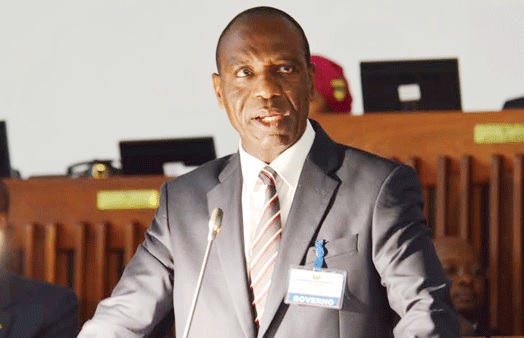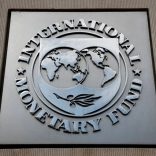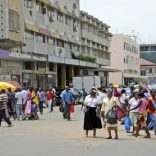IMF to visit Mozambique next month for more talks on support options
Mozambique: Wage rises “what was possible,” PM tells parliament

Mozambican Prime Minister Carlos Agostinho do Rosario on Monday claimed that the increase in the statutory minimum wages decreed last month “although not at the desired levels, are what is possible in the current economic situation”.
He was speaking in the Mozambican parliament, the Assembly of the Republic, answering questions from opposition deputies, who said that the new minimum wages do not meet the needs of Mozambican workers.
The increases range from 5.5 to 21 per cent, depending on sector. According to the Bank of Mozambique, the latest annual inflation figure, covering the period 1 April 2016 to 30 March 2017, is 21.57 per cent. Thus all of the wage rises are lower than the rate of inflation, and amount to a cut in real wages.
ALSO READ: Mozambique’s new minimum wages: From 3,642 to 10,400 meticais per month
Nonetheless Rosario insisted that fixing minimum wages through the Labour Consultative Commission (CCT), the tripartite negotiating forum between the government, the trade unions and the employers, is a mechanism that ensures protection of low paid workers.
Negotiations in the CCT, he said, “guarantee sustainable wage adjustment, without endangering the continuity of operations of enterprises”.
But the lowest of the new wages, for agricultural workers, is 3,642 meticais a month, equivalent to 56 US dollars. The unions estimate that, to purchase a basket of essential goods and services for a family of five, the minimum wage should be 16,000 meticais a month.
Rosario said the wage rises were influenced by the economic slowdown of 2016, when Mozambique’s annual growth rate fell to 3.3 per cent. He blamed this on natural disasters, notably the drought that hit much of southern and central Mozambique; on the fall in world market prices for some of the country’s main exports; on the attacks by gunmen of the rebel movement Renamo on the main roads, which limited the circulation of people and goods; and on the suspension of general budget support by Mozambique’s cooperation partners following the April 2016 revelations of over 1.1 billion dollars worth of previously undisclosed debts.
ALSO READ: Hanlon: Minimum wage falls below $60/month for first time in a decade
Wage rises, the Prime Minister argued, “should in principle reflect the real growth of production and the levels of productivity in the national economy. To guarantee wage rises and to improve purchasing power, we are all called upon to remain committed to increasing production and productivity”.
Rosario added that the economy was now showing signs of recovery, following the truce between Renamo and the government forces, and the likelihood of a good 2017 harvest. Inflation had slowed down, and the national currency, the metical, was now appreciating in value against the dollar and the South African rand.
“As a result of the good agricultural campaign under way, a gradual reduction in prices of some foodstuffs is now visible in the main markets, which will, to some extent, alleviate the cost of living”, he said.
Rosario was confident that the rate of growth in the agricultural sector could double, from the 2.6 per cent attained in 2016, to 5.9 per cent this year. “Improvements in production lead us to believe we are on the right path for relaunching solid foundations for sustainable economic growth and for improving living conditions”.
That would require focusing on agricultural production, and on maintaining peace, by transforming the current truce with Renamo into a definitive cease-fire.












Leave a Reply
Be the First to Comment!
You must be logged in to post a comment.
You must be logged in to post a comment.